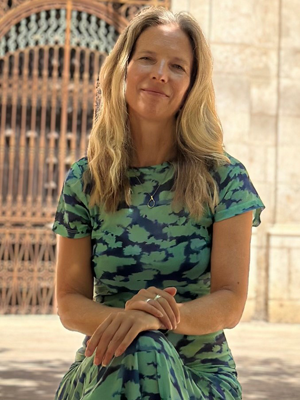How to Buy a Home in Spain
Summary: The one tip that you hear expats living in Spain repeatedly sharing with newcomers is not to buy a home when you first move to Spain. Rent for a few months or longer so that you have time to find the right neighborhood. Give yourself time to ensure that Spain is right for you for the long term. If you've already taken time to do those things and are ready to take the plunge and become a property owner, here are tips about buying a home in Spain.
Buying a home in Spain can be an exciting prospect for expats looking to enjoy the country's vibrant culture, sunny climate, and relaxed lifestyle. Whether you're seeking a bustling city apartment, a beachside villa, or a rustic country house, the Spanish property market offers a wealth of options to suit various preferences and budgets. However, navigating the process of purchasing property in a foreign country can be daunting, with different legal systems, regulations, and practices to consider. This guide aims to provide expats with essential information on how to buy a home in Spain, covering key topics from finding properties to understanding the legal requirements and potential pitfalls. With the right knowledge and preparation, you can make your Spanish home-buying experience as smooth and successful as possible.
How Do I Find Houses for Sale in Spain?
Finding houses for sale in Spain can be done through various channels. Online property portals are a popular starting point, offering extensive listings and the ability to filter searches by location, price, and property type. Websites like Idealista, Fotocasa, and Kyero are widely used for this purpose. Additionally, local real estate agents can provide valuable insights into the market and assist with the search. Property fairs and expos, as well as local newspapers and property magazines, can also be good resources for finding available homes. Networking with other expats who have gone through the process can provide recommendations and tips on where to look.
Are There Restrictions on Foreigners Owning Property in Spain?
Spain generally does not impose restrictions on foreigners purchasing property, whether they are EU citizens or non-EU nationals. This openness makes Spain an attractive destination for international buyers. However, non-EU buyers may need to obtain a military permit if they are buying in certain areas deemed to be of national security interest, though this is a rare requirement. Additionally, owning property in Spain can potentially lead to residency rights under the "Golden Visa" scheme for non-EU investors who make significant investments in Spanish real estate.
Does Spain Have an MLS Type System?
Spain does not have a Multiple Listing Service (MLS) system as is commonly found in the United States. Instead, real estate agents typically list properties on their own websites and on various online property portals. This means that there can be overlap in listings, and it may require more effort to get a comprehensive view of the market. Collaborative networks among agents do exist, but they are not as centralized or standardized as the MLS.
Do Brokers Have Licenses and How Do I Know if They are Licensed?
In Spain, real estate agents are not required to hold a license to operate, which means that practically anyone can become an agent. However, there are professional associations such as the Association of Real Estate Agents (API) that provide voluntary registration and certification. To ensure you are working with a reputable agent, look for those who are members of recognized professional bodies, have good references, and can demonstrate a track record of successful transactions. It's also advisable to check online reviews and ask for recommendations from other expats.
What Documents Are Required When Buying a Home in Spain?
When buying a home in Spain, several key documents are required throughout the process. These include: - NIE (Número de Identificación de Extranjero): A tax identification number for foreigners, which is essential for any property transaction. - Nota Simple: An extract from the Land Registry that provides details about the property, including ownership and any debts or charges against it. - Escritura Pública (Title Deed): The official deed of the property, which must be signed in front of a notary. - Proof of payment for the property transfer tax or VAT (IVA), depending on whether the property is a resale or new construction. - Energy Performance Certificate: Required to be presented by the seller, indicating the energy efficiency of the property. It's important to ensure that all documents are in order and that there are no outstanding debts or legal issues associated with the property.
Do I Need a Lawyer When Buying a Home in Spain?
Yes, it is highly recommended to hire a lawyer when buying a home in Spain, especially for expats unfamiliar with the local legal system. A lawyer will conduct due diligence on the property, ensuring that there are no legal impediments to the sale, that the property is correctly registered, and that all necessary documentation is in place. They can also assist with drafting and reviewing contracts, negotiating terms, and providing guidance on tax implications. Legal fees can vary but typically range from 1% to 2% of the property purchase price. It's crucial to choose an independent lawyer who is not affiliated with the seller or the estate agent to avoid any conflicts of interest.
Do People Typically Buy a Property With All Cash or Take Out a Mortgage?
Both options are common in Spain, with the choice often depending on the buyer's financial situation and preferences. Cash purchases can be simpler and may offer a stronger negotiating position, while mortgages can provide financial flexibility. Expats should be aware that Spanish banks may offer different mortgage terms to non-residents, often requiring a higher down payment and charging higher interest rates. It's advisable to shop around and compare mortgage offers from various banks, and consider consulting a financial advisor.
Are There Inspections That Take Place, and If So, What Is That Process Like?
Property inspections, known as 'tasaciones' in Spain, are not mandatory but are highly recommended, especially for older properties or those in rural areas. A professional surveyor can assess the property's condition, identify any structural issues, and provide an estimate of any necessary repairs. This can be particularly important for expats who may not be familiar with local construction standards and potential problems. The inspection process typically involves hiring a qualified surveyor to visit the property and produce a detailed report. The cost of an inspection can vary depending on the size and location of the property.
What Are Some of the Pitfalls to Avoid When Buying Property in Spain?
When buying property in Spain, expats should be cautious of several potential pitfalls: - Not conducting thorough due diligence: Always verify the legal status of the property and ensure there are no outstanding debts or legal issues. - Skipping a property inspection: This can lead to unforeseen repair costs and complications after purchase. - Overlooking additional costs: Be aware of taxes, notary fees, legal fees, and other transaction costs that can add up to 10-15% of the property price. - Rushing the process: Take your time to understand the market, compare properties, and negotiate terms. - Not securing independent legal representation: A lawyer will protect your interests and ensure that the transaction complies with Spanish law. By being aware of these issues and taking the necessary precautions, expats can avoid common mistakes and make a successful property purchase in Spain.
Expats Talk about Real Estate in Spain
"Make sure you don't end up in a tourist trap area and that where you do end up there is plenty of close by public transport. In Mallorca, stay in Palma or choose a country town where the train passes thru. The bus system is not good," said one expat living in Palma de Mallorca.
"The Prime Minister, Pedro Sánchez, announced in April 2024 that the Golden Visa residency by investment program which allowed non-EU citizens the right to reside and work in Spain by investing at least €500,000 in real estate will be scraped. Foreigners are still allowed to own property in Spain, however, but will no longer be able to use property as a pathway to residency. ," wrote Bianca Scott from Expat Estate.
Bianca Scott is the founder of Expat Estate, a bespoke buyer advisory service that helps foreign nationals purchase property in Spain.
Click connect to have our partner, Bianca, contact you via e-mail and/or phone.
Bianca Scott is the founder of Expat Estate, a bespoke buyer advisory service that helps foreign nationals purchase property in Spain.
Click connect to have our partner, Bianca, contact you via e-mail and/or phone.
"Yes, foreigners are allowed to own property in Spain. You will need to obtain a NIE, which is the identification number of a foreigner in Spain. You can obtain a non-resident NIE to buy property, if you do not plan to reside in the country. You can also invest half a million euros in real estate in Spain, and obtain residency through the golden visa," mentioned one expat living in Spain.
About the Author
 Betsy Burlingame is the Founder and President of Expat Exchange and is one of the Founders of Digital Nomad Exchange. She launched Expat Exchange in 1997 as her Master's thesis project at NYU. Prior to Expat Exchange, Betsy worked at AT&T in International
and Mass Market Marketing. She graduated from Ohio Wesleyan University
with a BA in International Business and German.
Betsy Burlingame is the Founder and President of Expat Exchange and is one of the Founders of Digital Nomad Exchange. She launched Expat Exchange in 1997 as her Master's thesis project at NYU. Prior to Expat Exchange, Betsy worked at AT&T in International
and Mass Market Marketing. She graduated from Ohio Wesleyan University
with a BA in International Business and German.
Some of Betsy's articles include 12 Best Places to Live in Portugal, 7 Best Places to Live in Panama and 12 Things to Know Before Moving to the Dominican Republic. Betsy loves to travel and spend time with her family. Connect with Betsy on LinkedIn.
Additional Information:
- Spain Guide
- Healthcare & Health Insurance in Spain
- Members Talk about Healthcare & Health Insurance in Spain
- Best Places to Live in Spain
- Real Estate in Spain
- Guide to Real Estate in Spain
- Pros & Cons of Living in Spain
- Cost of Living in Spain
- 10 Tips for Living in Spain
- 2025 Guide to Living in Spain
- Pros and Cons of Living in Spain 2025
- 2025 Guide to Moving to Spain





